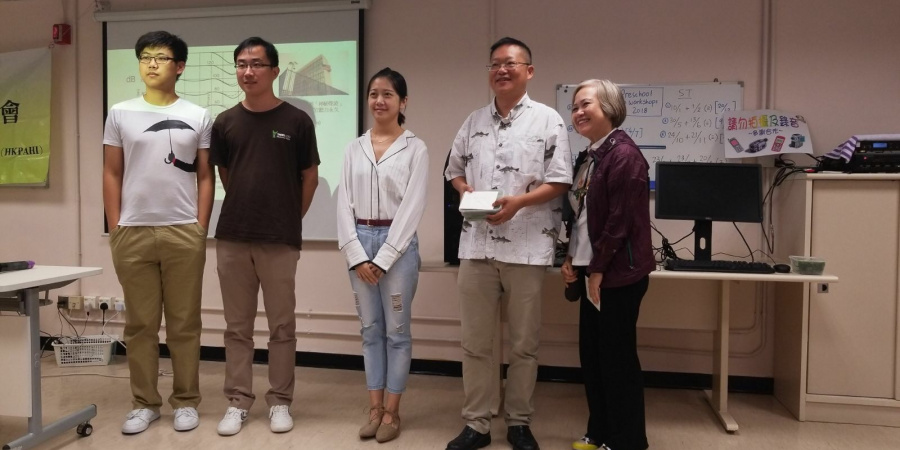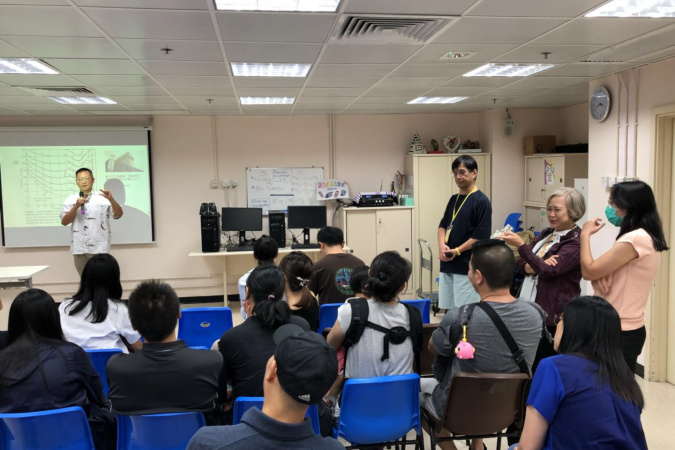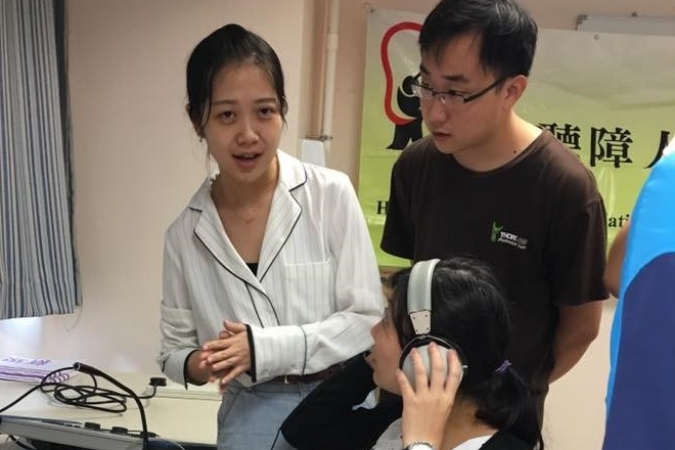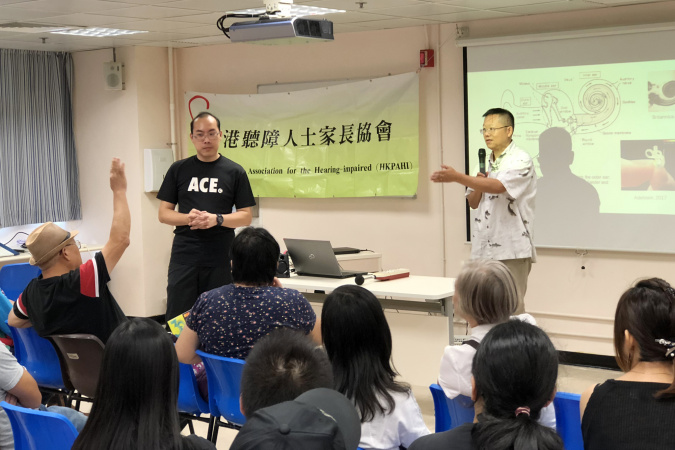Parents Experienced the World of Their Hearing-Impaired Children with HKUST PhD Students’ Simulated Audio Technology
Three PhD students of Industrial Engineering and Logistics Management (IELM) at The Hong Kong University of Science and Technology (HKUST) demonstrated their audio technology research to the parents of hearing-impaired children on October 7, enabling parents with normal hearing to experience what their hearing-impaired children are listening to every day.
The event was organized by the Hong Kong Parents Association for the Hearing Impaired at Pamela Youde Child Assessment Centre. Using computational models of human hearing, the IELM students Tingyi Wang, Shutao Chen and Jun Hui simulated the hearing profiles of seven different types of hearing loss in real time. Parents were able to record their speech and have a playback to experience what a hearing-impaired child would hear. They were also able to experience what a typical tinnitus would sound like.
Prof Richard So, Professor of the IELM Department and supervisor of the three students, said, “We are very glad to have the opportunity to share our research to the local community. The computational models of the human hearing were originally developed to simulate neural excitations to auditory nerves. As the original model’s outputs are 3D plots of auditory nerve firing patterns which may not be easily comprehended by the parents, my research team invested one week to modify the codes so that parents can hear the effects instead of seeing 3D plots. This has been a very fruitful experience as it strengthens the team spirit and gives the research students a sense of social responsibility and mission towards the society.”
“A recent survey indicates that there are over 74 million Chinese who are suffering from hearing loss. Using the latest audio technology and AI techniques, we can help the hearing-impaired community to improve their quality of life,” Prof So added.
Besides the simulated audio experience, a talk on hearing impairment was delivered by Prof So. He presented how bio-inspired algorithms can be used to separate background human speech from the foreground human speech and their potential applications in a new generation of hearing aids.
The PhD studies of the three students are about binaural listening with an aim to improve hearing-aid technology, VR 360 audio and voice control of robots in a noisy environment.




